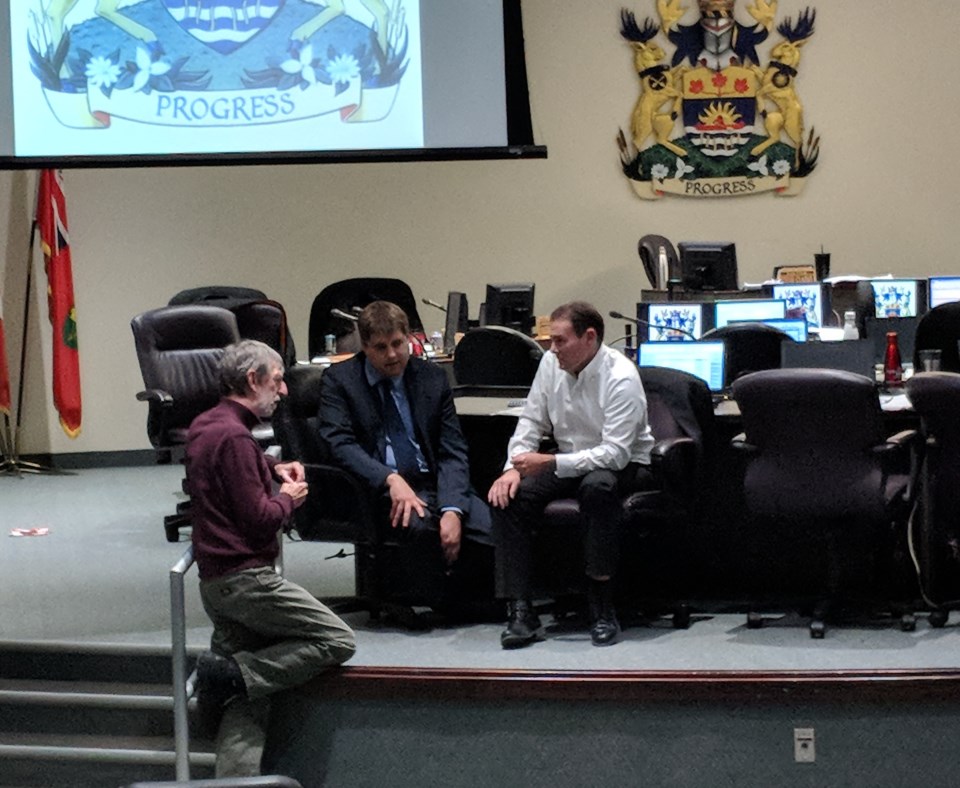Attention Orillia homeowners: Your taxes are going up in 2020.
After four days of council deliberations over the last two weeks, city councillors wrapped up their budget process Tuesday evening. As things stand, the residential tax hike is at 3.88%. However, when the education portion is factored in, it's estimated that will drop to 3.2%. (City staff are still waiting for confirmation from the province on the education portion).
The budget is subject to ratification at a special meeting of council Dec. 9.
Councillors spent much of a nine-plus-hour day Tuesday trying to whittle down the tax hike.
There was considerable debate about limiting contributions to reserves, about the opportunity a predicted surplus could present and other creative ways to keep the hike at a “palatable” level.
In the end, council did increase funding to most of its reserves - even though last year's contributions to those reserves were elevated markedly over the previous year.
Mayor Steve Clarke said he had hoped the tax increase would be less, but he stressed much of the increase is the result of things outside council’s control.
He noted the County of Simcoe required about $488,000 more than last year, while the Simcoe Muskoka District Health Unit needed about $43,000 more. On top of that, the new waste collection contract was $1 million higher than expected.
"It's been a difficult year," said Clarke, noting the pressures of downloading from the province and other pressures including the much higher price tag for contracted waste collection.
Despite those pressures, council decided to forge ahead with a $2.4 million plan to upgrade the city’s 3,200 lights to LED technology. However, to do so, they decided to go into debt.
The city will debenture the project, by borrowing the money from Infrastructure Ontario. The cost of borrowing is estimated to be about $58,000 annually over the next seven to eight years; that is expected to be offset by the estimated savings of moving from electricity to LED technology.
The last time the city used a debenture was 12 years ago, which was to help fund the construction of the new downtown library.
In addition, the budget includes the second phase of the Front Street reconstruction project, which carries a price tag of $9.5 million. Other big-ticket items approved include the $2.82 million expansion of the Horne Business Park and $3.4 million to cap parts of the Orillia waste diversion site.
Councillors also gave a green light to a plan to install solar panels on the roof of the new Orillia Recreation Centre. The city is contributing $30,000 to the project being spearheaded by Sustainable Orillia, which has vowed to raise $210,000 to fund the bulk of the project.
A new $3.1-million refrigerated skate trail did not make the cut. Nor did a $75,000 design plan for Foundry Park or a new enforcement officer necessary to move to a proactive clean and clear bylaw.
Councillors also agreed to double their contribution (from $200,000 to $400,000) to the roads reserve. That means council is diverting $1.278 million into that reserve this year in total.
Coun. Tim Lauer noted that during the previous election, when the sale of the distribution arm of Orillia Power was a hot-button issue, when a $55.5-million recreation centre was also contentious for many, neither were the primary issues for most citizens.
“The No. 1 issue was roads,” said Lauer. “We’re not spending enough, obviously, and we’re falling behind.”
A majority of councillors agreed.
The road projects approved, in addition to the major work to Front Street and a $1 million project to improve Bleeker Street include:
- Fittons Road East from Laclie Street to Tallwood Drive;
- Barrie Road from Lakeview Avenue to Jamieson Street;
- Collins Drive from MacIsaac Drive to 289 metres north;
- Brammer Drive from Huronia Road to the end;
- Andrew Street from Market Street to Colborne Street West;
- Bay Street from Drinkwater Drive to Maple Drive; and
- Cedarmere Road from Forest Avenue North to end.
Staff will report back to council about other potential roads and sidewalk projects that could be funded by the additional $400,000 contribution to reserves.
In addition to the $1,278,000 contributed to the roads reserve, council also beefed up the following reserves:
- Increased contribution to Downtown Tomorrow Community Improvement Plan by $150,000 to $375,000;
- Increase contribution to Vehicle Equipment Replacement Reserve by $200,000 to $1,193,000;
- Increased contribution to Major Facilities Capital Maintenance Reserve by $200,000 to $1.9 million;
- Increase contribution to Reserves (Various) by $150,000 to $1,398,000;
- Increased contribution to Capital Tax Levy by $50,000 to $2 million;
- Made a contribution of $80,000 to a new Affordable Housing Reserve.
